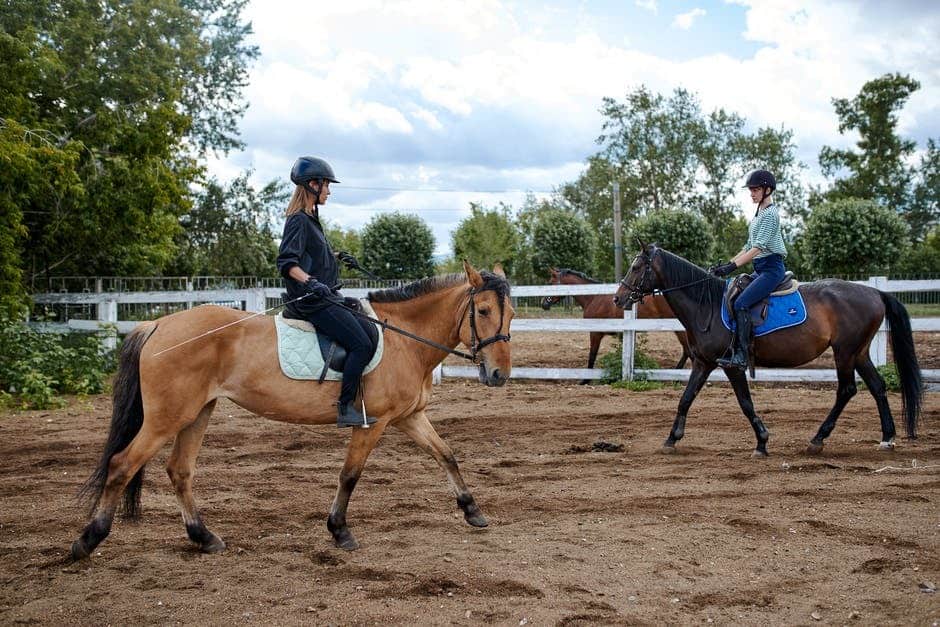Don’t underestimate the healing nature of horses. Some people are currently using horses as a way to heal from trauma, addiction, and anxiety. This article explains why people recommend equine therapy and how it can help you heal. Even if you’ve never ridden a horse, you might find this therapy works for you.
What Is Equine Assisted Therapy?
Equine therapy is an animal-based therapy where patients can interact with horses to heal from various mental health conditions. Also called hippotherapy, equine-assisted therapy is a form of “recreational therapy,” or therapy in a less formal and relaxed environment. This interactive form of therapy can be a great alternative to conventional therapy for those who haven’t found results in a traditional office setting. There’s some dispute about calling equine therapy alternative therapy as it isn’t always an alternative to conventional therapies; instead, more often, it is complementary to other existing therapies.
How Equine Therapy Helps
This type of therapy can help patients get outside of themselves. A person can focus on the horse and, as a result, better stay in the moment. Equine therapy also creates a safe and calming space to process emotions, traumas, and obstacles a person might be facing.
Another observation about horses is that they are compassionate creatures. They process information using emotions but don’t linger on the feeling once the threat has passed. A person with post-traumatic stress disorder (PTSD) might relate to a horse’s hypervigilance and, therefore, can process that symptom by watching how the horse’s emotions change.
Equine therapy can also help with relationship building. When a person enters equine therapy, they choose the horse — or rather, the horse decides them — and that person, over time, builds a bond while handling the horse.
Many people who try equine therapy have never been around horses before. When they first encounter the horses, they might feel intimidated. However, people get used to their presence over time and find that they genuinely care for these creatures. The experience teaches the person that they are capable of more than they might think, therefore positively impacting their self-esteem.
What to Expect From an Equine Therapy Experience
The model of an equine therapy session varies from place to place because it is often target-based. The exercises depend on what the goal of the session is. Sessions tend to start with horse education first. The patients might learn about horse safety, care for horses, and how horses communicate. Sometimes the information is related back to the self. The therapist might discuss the participating individuals’ boundaries in a session, as boundaries are essential for horse safety. The discussion might go back to personal self-care and care for others or turn into a lesson on how we communicate to our “herd” or family systems.
Equine therapy does tend to have a less structured approach. Many people who try the equine experience will likely make their own insights about what they processed. For example, horses are known to mirror a person’s emotions they are interacting with. If a person feels anxious, then a horse might become anxious. A person can see their feelings from the outside, recognize and then adjust. Equine therapy can also have a symbolic approach. Being very large mammals, horses might represent the obstacles in a person’s life. Horses can also represent family dynamics. A person might identify with the horse they choose and make the connections between that horse in the herd, and their place within their family.
Extra Benefits of Equine Therapy
This type of therapy lets the person spend time outdoors with nature which can have positive effects. Equine therapy is also very relaxing. Some methods used in equine therapy might include mindfulness, breathing exercises, and meditation. Grooming a horse can be a meditative experience. Some places that practice equine therapy have included sessions where the person listens to the horse’s breathing and tries to match it or sync up. Horses are also known to live in the moment, and patients can learn to model that mindset as it is vital for recovery.
A Few Important Disclaimers
Equine therapy is still being researched, though early evidence does seem promising. Past research has had limitations due to small sample sizes and no control groups, making the data unreliable. Equine therapy also doesn’t have a consistent modality, making it harder to study, but there isn’t any evidence of adverse mental health effects of the approach. However, it is suggested to use equine therapy alongside evidence-based therapy methods. Currently, equine therapy is used by the Department of Veterans Affairs, and so far, it seems successful.
Even if you’ve never seen a horse in your life, you might find equine therapy enjoyable. Novel experiences can be helpful in treatment and addiction recovery because it allows you to grow confident after trying something new. You might not see yourself as someone who would enjoy horses, but you’d be surprised to find how loving horses can be. Horses are kind creatures, and many have felt that horses understand them more than people do. At Villa Oasis San Diego, we offer equine therapy as one of our many treatment methods, which is an excellent alternative for people who haven’t had success with other forms of treatment.
To learn more about our equine therapy program, call us today at (323) 739-8673. This form of therapy could be just what you have been searching for. You’ll never know until you make the call.




